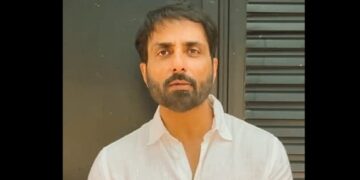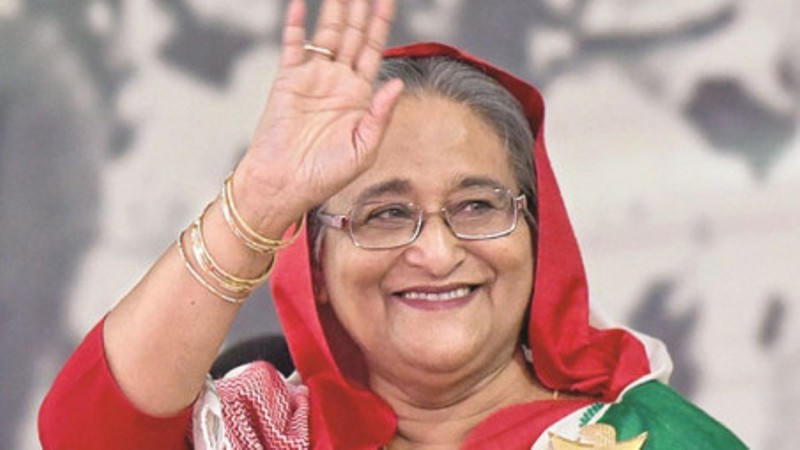The International Crimes Tribunal (ICT) in Bangladesh has issued a warrant of arrest against the Iron Lady Sheikh Hasina to surrender by November 18.
Her autocratic regime collapsed on August 5 after a 36-day-long countrywide student-led bloody Monsoon Revolution, which killed more than 700 students and protesters.
The cases against Hasina have held her responsible for the deaths of hundreds of students and protesters in the anti-government street demonstration, which turned violent.
When she announced that the doors of Gonobhaban, the official residence of the Prime Minister were open for the student leaders, it was too late and too little.
Instead of negotiating with the student protesters, she ordered the police to shoot, kill and detain protesters. More than 10,000 protesters were bundled in prison vans and taken to magistrate courts accused of terrorism.
The ICT was established in Hasina’s tenure for the trial of those who have committed crimes against humanity during the brutal birth of Bangladesh in the 1971 liberation war.
The majority of the indicted persons were Islamist political leaders, a few police and local village elites. It was believed that political Islam would come to an end after the trial.
Hasina has been squarely blamed for indulging political leaders, party henchmen, and civil and police administration into kleptocracy. All the Prime Minister’s men were involved in money laundering, siphoning money from banks, buying properties in foreign countries, stashing money in off-shore banks and procuring second-country resident permits and dual citizenship after depositing millions of dollars in various countries.
After the ICT has issued a warrant of arrest, it is time to observe how Delhi’s South Block will react to the pressing issue.
International media has already made screaming news of the arrest warrant against Hasina and others. She is presently living in a safe house on the fringes of New Delhi, the capital of India.
She fled Bangladesh on August 5 by a Bangladesh Air Force transport aircraft from Kurmitola Air Force base in Dhaka.
On her arrival, Ajit Doval, the National Security Adviser to the Indian government, met her at the Hindan Air Force Base at Ghaziabad, not far from New Delhi.
No senior officials of Indian Prime Minister Narendra Modi’s administration have met her at the safe house since she arrived more than two months ago.
Her Red Passport, a diplomatic travel document and her Deshi Green Passport, have been revoked by the Interim Government. The United States and several countries in Europe and the United Kingdom have refused her entry.
Meanwhile, even after 73 days, more than two months Hasina’s eldest son Sajeeb Wazed Joy, living in Washington DC, USA, and her daughter Saima Wazed Putul have been unable to meet her.
Saima, who is working in Delhi as Saima Wazed, has been serving as the South East Asian Regional Director for the World Health Organisation (WHO) since November 2023 and lamented in her Twitter (X) that she has not been able to hug her and wrote a strange message that she is too busy in her workplace, series of planning meetings, meeting delegations and visit to several countries.
A high-profile Indian journalist who was with Ajit Doval’s outfit National Security Council, who is privy to the issue and does not wish to be named, said Delhi South Block has unofficially explored possibilities with a few countries for her stay in a third country.
Hasina is literally stranded in India and has nowhere to go. Delhi bigwigs are in dilemma about what should be their next step after India’s friendly countries did not respond to requests.
Well, it is too early for the Indian government to react as they will have to wait and see what is likely to happen after the deadline for appearance at the ICT expires.
ALSO READ: Is Sheikh Hasina’s next destination Russia?
Delhi will have to further wait for the verdict against the cases against Hasina to be delivered by the ICT. It is not likely before another year or more, as defence lawyers will appeal to the higher court against the verdict, which will take several additional months.
Saleem Samad is an award-winning independent journalist based in Bangladesh. A media rights defender with the Reporters Without Borders (@RSF_inter). Recipient of Ashoka Fellowship and Hellman-Hammett Award. He could be reached at saleemsamad@hotmail.com; Twitter (X): @saleemsamad















